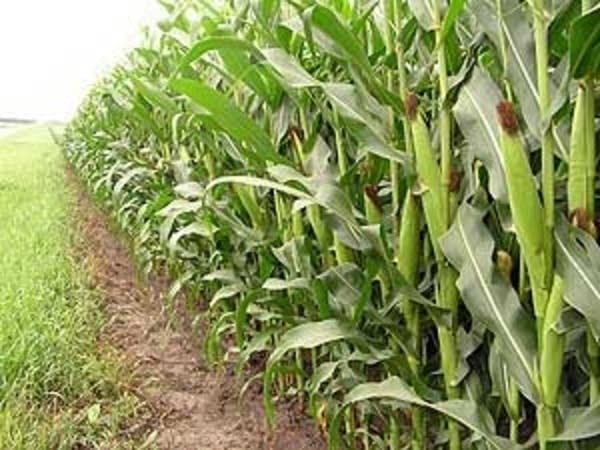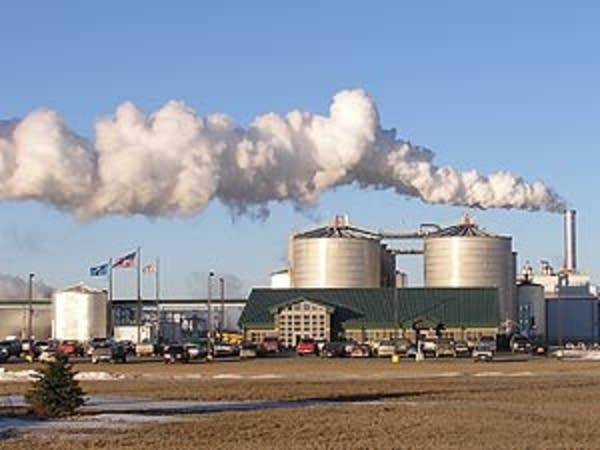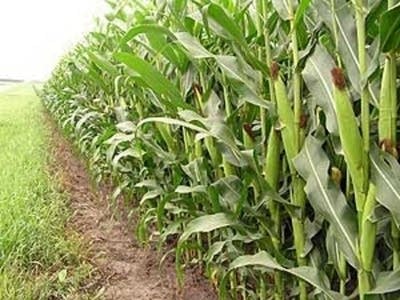Ethanol is no cure-all for energy problems
Go Deeper.
Create an account or log in to save stories.
Like this?
Thanks for liking this story! We have added it to a list of your favorite stories.

(AP) - A number of researchers, the latest in a report Monday, are warning about exaggerated expectations that ethanol could dramatically change America's dependence on foreign oil by shifting motorists away from gasoline.
As far as alternative fuels are concerned, biodiesel from soybeans is the better choice compared with corn-produced ethanol, University of Minnesota researchers concluded in an analysis Monday.
But "neither can replace much petroleum without impacting food supplies," the researchers concluded in the paper published in the Proceedings of the National Academy of Sciences.

The paper said development of nonfood materials such as switchgrass, prairie grasses and woody plants to produce cellulosic ethanol would be a major improvement with greater energy output and lower environmental impacts.
Turn Up Your Support
MPR News helps you turn down the noise and build shared understanding. Turn up your support for this public resource and keep trusted journalism accessible to all.
But creation of cellulosic ethanol remains in the laboratory research stage. And even nonfood sources of ethanol would fall far short of replacing gasoline, most researchers agree.
Biofuels such as ethanol are "not a practical long-term solution," and their widespread use - even from nonfood crop sources - could have a "devastating" impact on agriculture, two researchers at the Magleve Research Center of the Polytechnic University of New York, argued recently.
"Ethanol from 300 million acres of switchgrass still could not supply our present gasoline and diesel consumption, which is projected to double by 2025," the researchers, James Jordan and James Powell, wrote in an op-ed article in the Washington Post. "The agricultural effects of such a large-scale program would be devastating."
In addition to a reduction in soil fertility by not plowing wastes back into the ground, there is concern that using corn and soybeans for ethanol would create competition for food crops.
If every acre of corn were used for ethanol, it would replace only 12.3 percent of the gasoline used in this country, according to the study.
But Geoff Cooper, a spokesman for the National Corn Growers Association, calls suggestions that the growth of ethanol will jeopardize food supplies as "fear mongering."
"There's absolutely no shortage of corn," said Cooper. He said demand for corn for livestock feed has been flat and that increased production and expected higher yields per acre will provide plenty of corn to meet all needs.
In a frenzy to respond to public outcries about high gasoline and crude oil prices, members of Congress as well as the Bush administration have embraced ethanol as the alternative to gasoline to help move the country closer to energy independence.
Ethanol, virtually all of it made from corn in this country, also has been touted as the "green" alternative motor fuel with a push to make it more widely available not only as a 10 percent additive but with an 85 percent blend with gasoline.
"We definitely believe that biofuels (such as ethanol) have a significant potential," said Jason Hill, lead author of the University of Minnesota study.
But he added that ethanol should not be viewed as "a savior" to our energy problems and its rapid expansion as a motor fuel has its drawbacks, especially if it is dependent on food crops such as corn and soybeans as feedstock.
If every acre of corn were used for ethanol, it would replace only 12.3 percent of the gasoline used in this country, Hill's study said, adding that the energy gains of corn-produced ethanol are only modest and the environmental impacts significant.
As a motor fuel, ethanol from corn produces a modest 25 percent more energy than is consumed - including from fossil fuels - in growing the corn, converting it into ethanol and shipping it for use in gasoline.
[image]
While often touted as a "green" environmentally friendly fuel, corn-based ethanol's life cycle environmental impacts are mixed as best, the researchers said.
Compared with gasoline, it produces 12 percent less "greenhouse" gasses linked to global warming, according to the study. But the researchers also said it has environmental drawbacks, including "markedly greater" releases of nitrogen, phosphorous and pesticides into waterways as runoff from corn fields.
Ethanol, especially at higher concentrations in gasoline, also produce more smog-causing pollutants than gasoline per unit of energy burned, the researchers said.
"There's a lot of green in the money that's going into ethanol, but perhaps not so much green is coming out as far as the environment," said Hill, the lead author, in a telephone interview.
The ethanol industry says there's little new in the University of Minnesota study.
"Everyone in the industry recognizes that there is a limit on how much ethanol you can produce from corn," said Matt Hartwig, a spokesman for the Renewable Fuels Association, which represents ethanol producers.
"Nobody is saying that ethanol is the silver bullet that is going to solve all our energy problems. It's going to take a whole host of technologies. ... But ethanol and other biofuels play a very critical role."
He said the University of Minnesota study is only the latest to conclude that ethanol produces more energy than it consumes. "More importantly, there is a significant reduction in petroleum use with ethanol," he added.
Last year about 14 percent of the corn crop went to ethanol, compared with 11 percent four years ago. This year the amount of corn for ethanol could be nearly one in every five bushels grown, or 19 percent, according to Agriculture Department estimates.
The Corn Growers Association says that by 2015 a third of all the corn grown - or 5.5 billion bushels - likely will be for ethanol. The Energy Department says it has a goal of 30 percent of the fuel used by motorists to be ethanol - both corn-based and cellulosic - by 2030.
(Copyright 2006 by The Associated Press. All Rights Reserved.)




